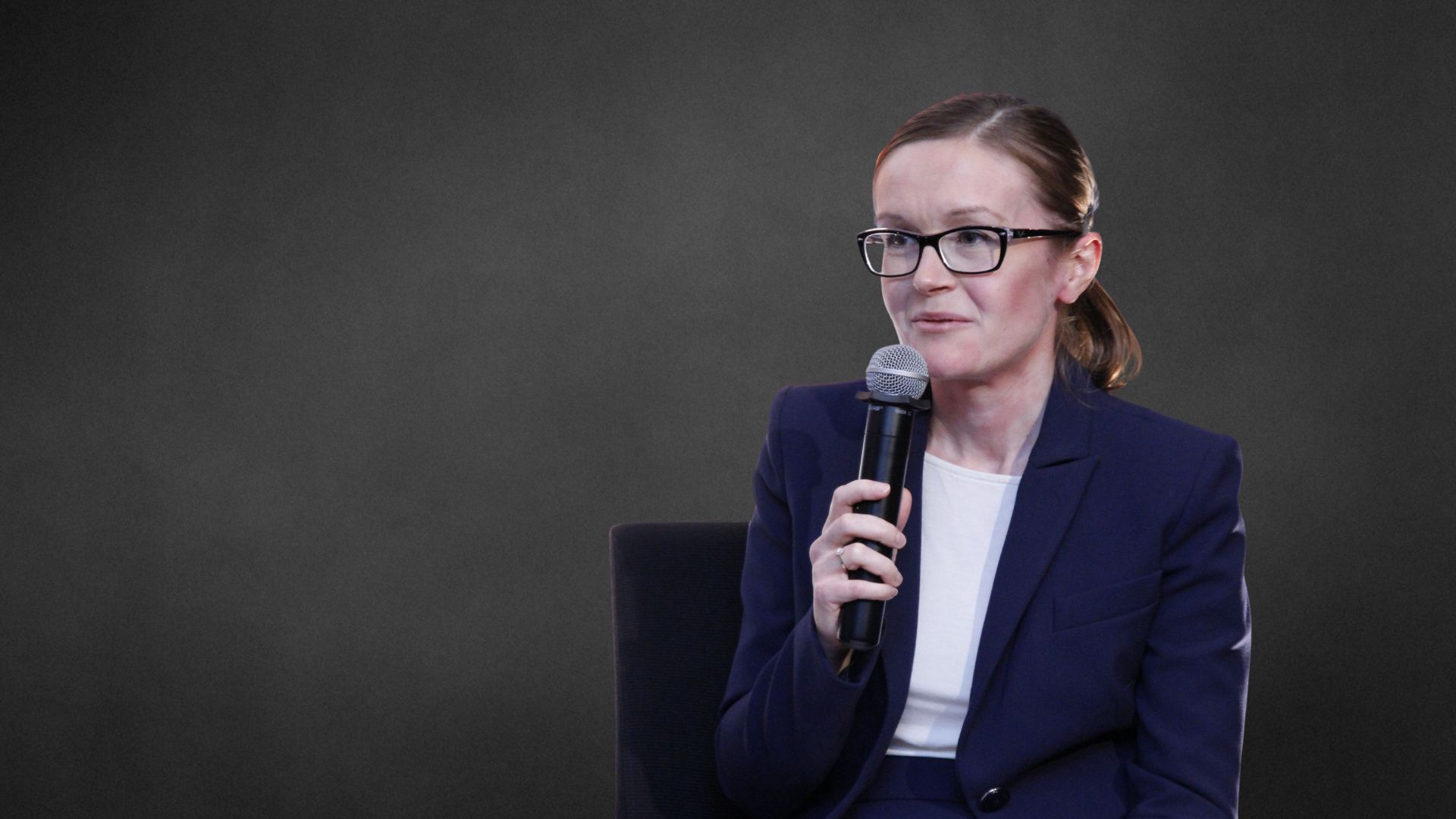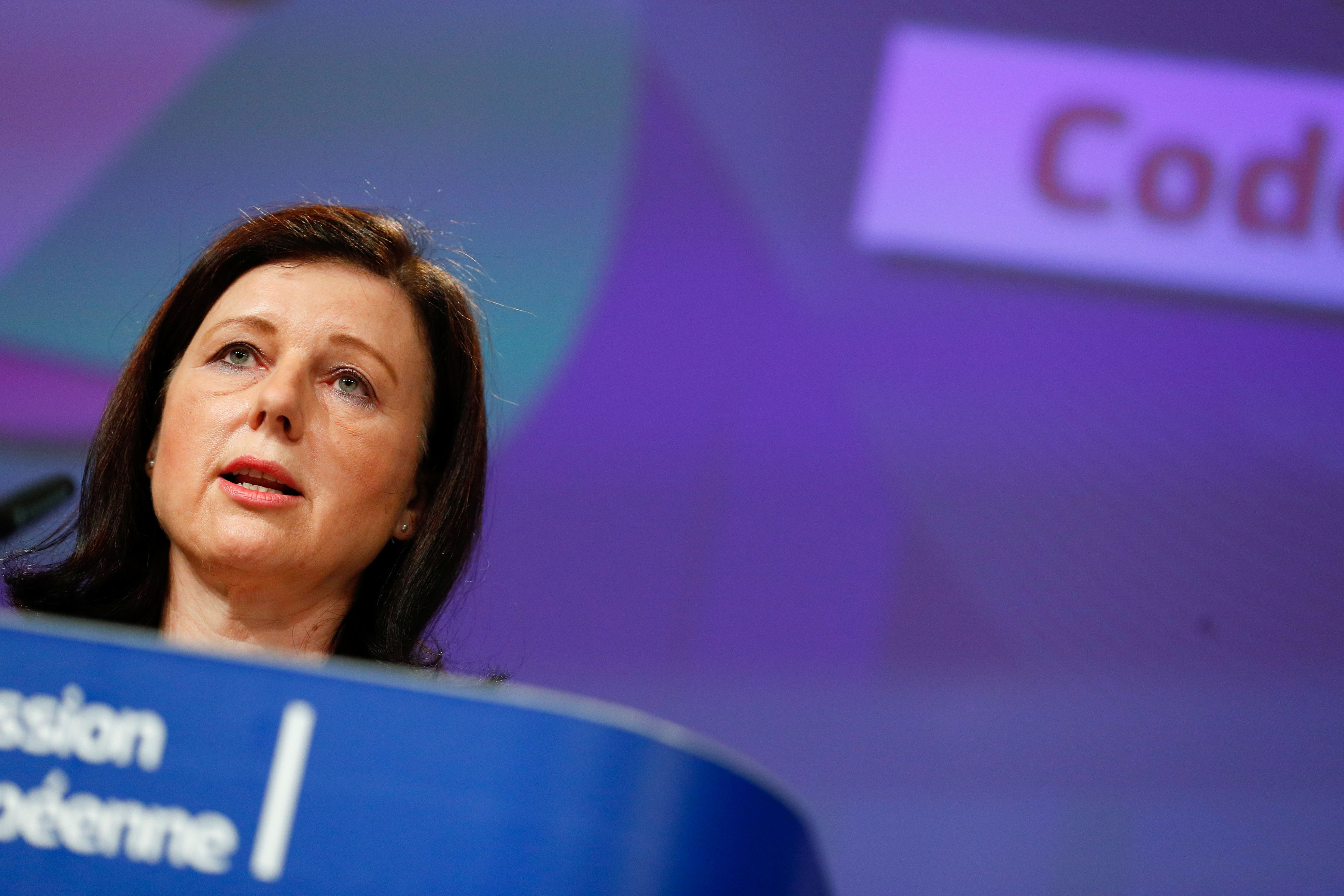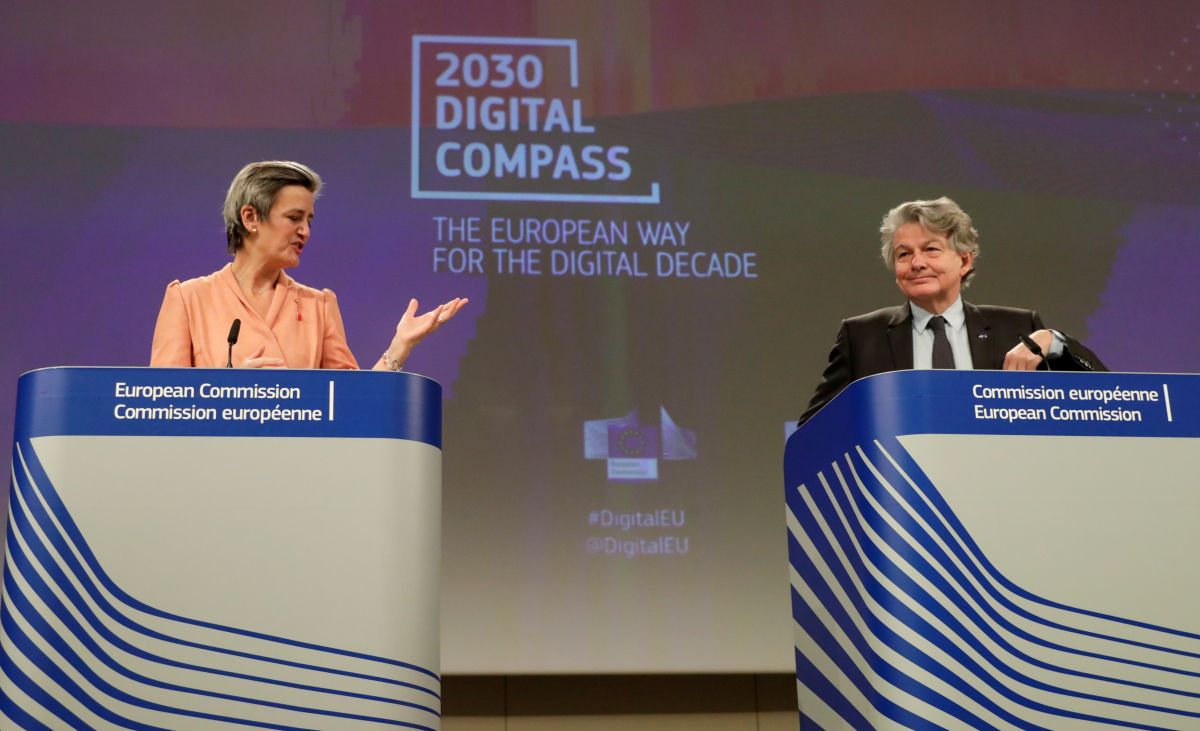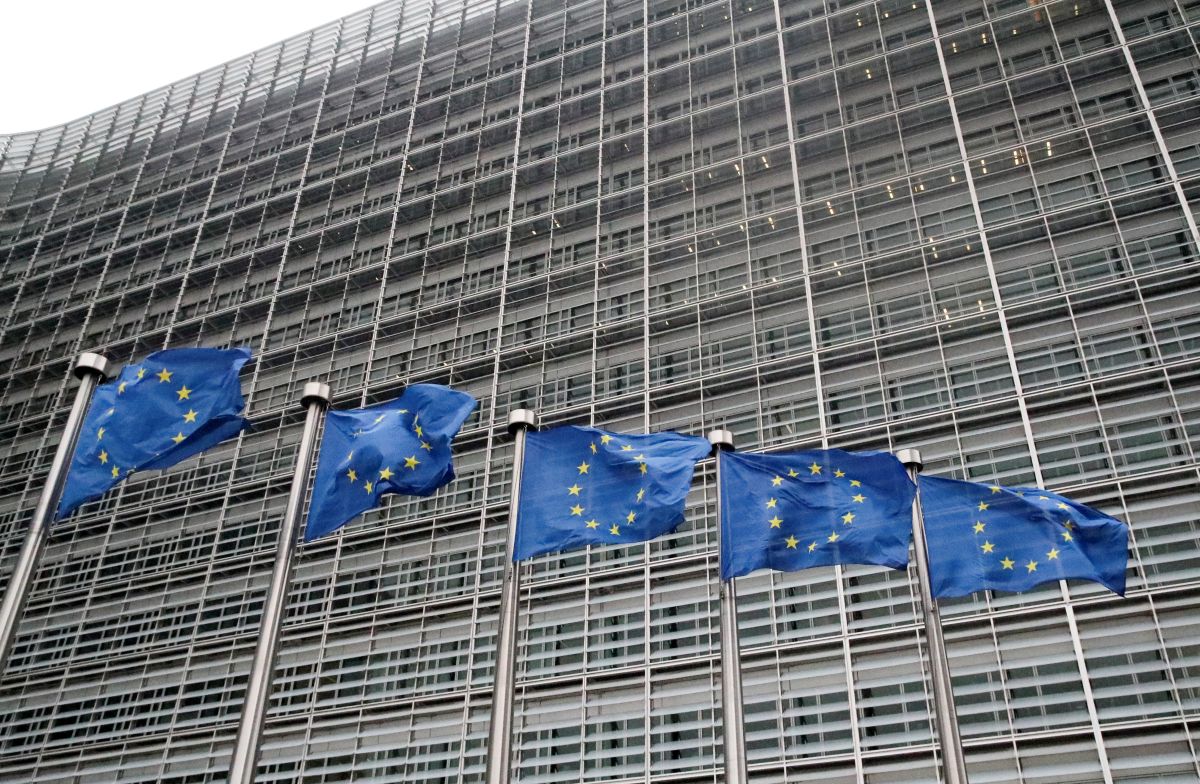Countering Russian Disinformation about Ukraine in the EU
Russia is actively conducting disinformation campaigns in the EU regarding its war in Ukraine, which may weaken the support for the latter country in some Member States in the long run. Although the EU is trying to counteract the messages, the challenges included the circumvention of sanctions by Russian media and the limited possibilities of controlling the activities of internet platforms. For Poland, it is important to further strengthen the EU’s ability to counter disinformation by, for example, expanding the East StratCom monitoring cell.
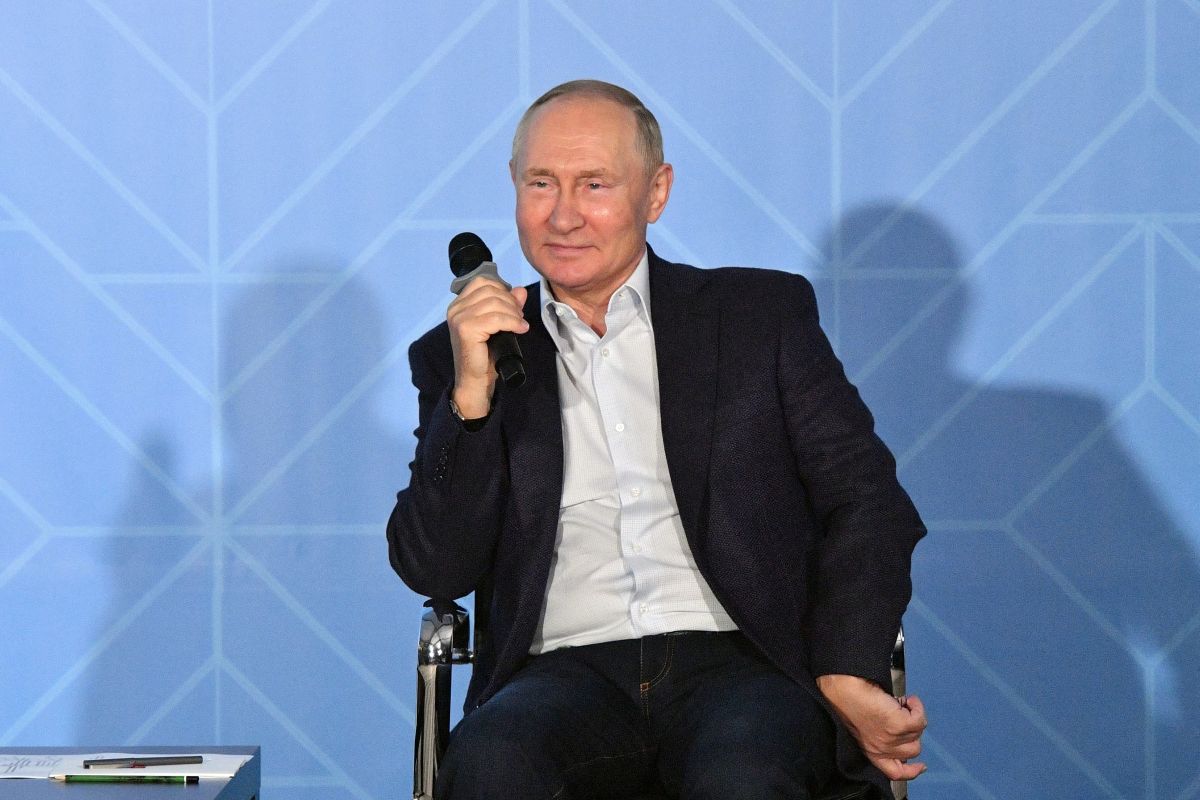 SPUTNIK/ Reuters/ FORUM
SPUTNIK/ Reuters/ FORUM
There are numerous disinformation campaigns related to Ukraine in the EU. From March to July this year, 35% (around 2,500) of the cases of disinformation detected by the European Digital Media Observatory (EDMO), the largest network of NGOs and experts in the EU, concerned the war against Ukraine. The scale of such activities is also confirmed by the assessments of specialised EU and NATO cells. That the Russian authorities are initiating these campaigns is evidenced by their organised nature, the promotion of Russian officials’ statements and state media content (e.g., RT and Sputnik), and the localisation of accounts with IP addresses on Russia territory.
Characteristics of Russia’s Activities
Among the aims of the Russian Federation’s disinformation campaigns are to undermine the consensus on EU support for Ukraine, to justify the war by Russia, and to conceal war crimes. The message consists mainly of promoting the official theses of the Russian authorities, namely that Ukraine is a Nazi state and that Russia is defending itself against NATO aggression, while the Ukrainian authorities stage many massacres and wrongly accuse Russia of them, and Western media present false information about the war. Ukrainian refugees are falsely presented as aggressive, criminal, fascist, and a group preferentially treated above local communities, especially in Bulgaria, Czechia, Estonia, Latvia, and Poland. In turn, the messages argue that sanctions are supposedly causing enormous economic problems for the EU. So far, the disinformation with the greatest reach among recipients has been, for instance, campaigns aimed at blaming Ukraine for the crimes in Bucha, the destruction of Mariupol, which was in fact carried out by Russian troops, and promoting the conspiracy theory about alleged U.S. secret biological weapons laboratories in Ukraine (according to EDMO data).
The campaigns are mainly carried out by disseminating false information in social media using fake accounts, trolls, and bots, most often on several platforms at the same time. Increasingly, the campaigns use artificial intelligence to create fictitious user accounts, photos, videos, or satellite maps, or to send large numbers of messages at once. They use websites pretending to be well-known news sites, such as the BBC, CNN, and DW, or promote pseudo-scientific publications. Campaigns are conducted in the national languages of the EU countries and in Russian. In many countries, such as the Netherlands, France, and Germany, Russian disinformation is disseminated by extreme right-wing political circles.
EU Actions
As part of the sanctions packages adopted in March and June this year, the EU banned the broadcasting by EU operators of five Russian state-owned stations used to intentionally spread disinformation, including Sputnik, RT, and its subsidiaries, Rossiya RTR/RTR Planeta, Rossiya 24/Russia 24, and TV Center International. The ban applies to all means of transmission and distribution within the EU, including cable, satellite, internet, platforms, websites, and applications. The EU regulation also prohibits knowingly participating in activities aimed at circumventing sanctions. Although RT France appealed against the sanctions, arguing it violated freedom of expression and other rights, the General Court rejected it in July, confirming the legality of the restriction. Some Member States, including Estonia, Lithuania, Latvia, and Poland also limited the activities of other Russian media based on the Audiovisual Media Services Directive.
The EU agreed in April new mechanisms to tackle disinformation in the Digital Services Act (DSA), which will enter into force in 2024. The largest online platforms and search engines will need to adopt a transparent system to monitor and remove illegal and harmful content, including disinformation. An external audit will assess the compliance of their activities with EU law, and violations of the regulations may result in a fine of up to 6% of the annual turnover. In June, the EU adopted a revised Code of Practice on Disinformation. It contains guidelines for cooperation between EU countries with the largest platforms but does not formulate specific rules for removing harmful content. The EU also has its own small situational assessment capabilities in the field of detecting disinformation, for instance, the East StratCom task force consisting of 16 full-time staff, and an early warning system. EU spending on countering disinformation in the years 2015-2020 amounted to only €50 million.
Challenges
Despite the sanctions adopted, the content of RT and Sputnik websites is still disseminated in the EU Member States on social media. Prohibited materials are promoted, for example, by inauthentic accounts and private users who knowingly or unknowingly copy the content of the pages or provide links to them. Russian journalists disseminate such content from their own social media accounts operating on EU territory. The prohibited media can be accessed via a VPN service and by obtaining an IP address from, for example, Serbia, which is not bound by EU sanctions. The low detectability of such practices by platforms is due in part to a lack of staff, including people speaking EU national languages, on their disinformation teams.
Countering disinformation about Ukraine is hampered by the arbitrary interpretation by social media of the adopted rules. They block and remove content reported by users to varying degrees. According to data provided by the Ukrainian authorities, Meta (including Facebook) most often blocks such content, but Twitter and YouTube ignore many reports. This is in line with a broader trend in the operation of these platforms. Annually, NATO StratCom estimates that the largest of them delete only a small percentage of reported inauthentic accounts, and most of the fraudulent interactions remain online. At the end of May, many companies such as Google, Criteo, and MGID were also generating income from advertisements placed on websites with disinformation about the war (Global Disinformation Index data). The new DSA will enhance the EU’s control over platforms to a limited extent, as the challenge will be the inconsistent interpretation of DSA provisions by companies, which may result in legal disputes with the EC.
Another limitation for counteracting disinformation is the widespread availability of services to conduct such campaigns and their relatively low cost. Online, ready-made programs for creating, for example, fake photos of social media account profiles can be obtained. In 2021, for about $300, one could buy more than 100,000 false interactions (including likes, page views, comments) on Facebook, Instagram, YouTube, Twitter, Tiktok, and VKontakte. Knowledge about this offer made it possible to identify nearly 10,000 accounts used for manipulation (NATO StratCom data).
It is very difficult for the EU and non-governmental organisations (NGOs) to correct Russian manipulation, as it appeals to emotions and is well-profiled in terms of the recipients. It also reaches a significant part of the population in the EU that believes in conspiracy theories. The spread of Russian disinformation is favoured by the regular decline in trust in traditional media in most Member States and other factors. In 2022, 50% of the population in Germany trusted such media, 42% in Poland, 29% in France, and 27% in Greece.
Perspectives
Russian disinformation addressed to both the Russian and foreign societies will intensify as the war in Ukraine continues. The increasing EU economic problems will contribute to its spread in Member States, mainly with reference to Ukrainian refugees or the negative impact of sanctions on the EU. Although it is difficult to assess the effectiveness of disinformation, it may weaken support for Ukraine in some EU Member States in the long run. In Bulgaria, where the society has traditionally been sympathetic with Russia, many disinformation campaigns are taking place. Among EU members, this state in May had the lowest percentage of the population that supported economic sanctions against Russia (44%) and military aid to Ukraine (30%).
For Poland, it is important to further strengthen the EU’s capacity to counter disinformation on Ukraine through a boost by the Member States of the East StratCom budget. To enforce the DSA rules, the EC and Member States will need to increase staffing in the field of disinformation detection. The EC could facilitate the cooperation of NGOs and platforms when it comes to removing the content of sanctioned media and limiting the possibilities of earning money on disinformation. Regular strategic communication with EU societies will also be necessary, for example, in explaining the real impact of sanctions on the EU economy.


